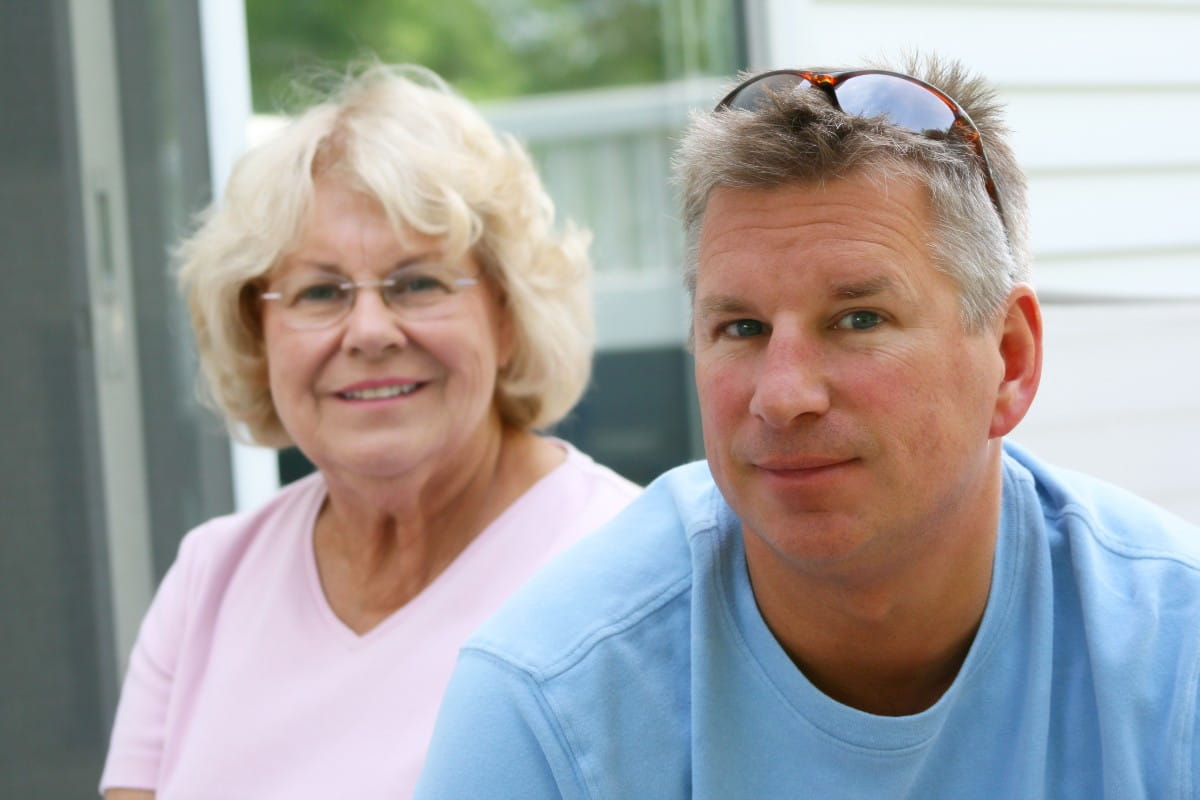Colorectal cancer is the third most common cancer diagnosed and the second leading cause of cancer death in men and women combined in the United States. The American Cancer Society estimates in the United States in 2024 there will be 106,590 new cases of colon cancer and 46,220 new cases of rectal cancer.
In the early stages, colorectal cancer may not produce any symptoms. As the disease progresses, more symptoms may appear. This is why understanding signs and symptoms is so important and to begin screening on time.
Colorectal cancer is increasing at alarming rate in adults in their 20s 30s and 40s.
The American Cancer Society reported that 20% of diagnoses in 2019 were in patients under 55. That’s double the rate in 1995. Each year, rates of advanced colorectal cancer diagnoses increased by about 3% in people under 50.
A sedentary lifestyle, a diet high in processed meat, red meat, processed foods and obesity may be contributing factors to the rise of colorectal cancer in younger adults.
Learn more about colorectal cancer in younger adults.
Pay attention to signs and symptoms that could indicate colorectal cancer, no matter your age.
If you have any of these symptoms, it’s important to make an appointment with your health care provider right away, so the cause can be assessed and treated. Don’t dismiss these changes:
- A change in bowel habits, such as diarrhea, constipation, or narrowing (pencil- thin or flat) stool, that lasts for more than a few days
- A feeling that you need to have a bowel movement that's not relieved by having one
- Rectal bleeding with bright red blood (do not assume it is only a hemorrhoid)
- Blood in the stool, which might make the stool look dark brown or black
- Cramping or abdominal (belly) pain
- Weakness and fatigue
- Unintended weight loss
- Decreased appetite and early satiety (feeling full quickly)
With screening, colorectal cancer is one of the most easily detected and preventable types of cancer. Begin screening at 45 years of age, or earlier if you have risk factors for colorectal cancer.
According to the American Cancer Society, if all adults 45 and older were screened for colorectal cancer, we could avoid thousands of deaths each year and prevent many people from ever getting the disease. When colorectal cancer is detected at an early stage, before it has spread, the cancer is very treatable and beatable.
Riverside offers three choices for screening test options that detect and prevent colorectal cancer: colonoscopy and two at-home stool-based tests. If you have an abnormal test result from an at-home stool-based test, you will need to have a colonoscopy.
Screening is important no matter which screening test method you choose.
Discuss with your primary care provider which screening test is right for you based on your personal risk factors.
Colonoscopy is the gold standard for screening. This is the only test available that allows your doctor to see and examine the entire length of your colon. If a polyp is discovered, your doctor can take a piece of it for further testing and/or remove it completely during the procedure. A colonoscopy helps prevent cancer by removing polyps before they have a chance to become cancerous. This test is done in a clinic or hospital. Your doctor inserts a scope (a small, flexible tube with a tiny camera on the end) into your large intestine through the anus. You’re placed under sedation during the entire test, so you stay comfortable and relaxed. Though you must prepare by completely emptying your colon before a colonoscopy, it’s the only test that allows your doctor to see and examine the entire length of your colon and remove polyps. If your results come back normal, you won’t need another colonoscopy for another 10 years.
Stool DNA tests looks for cells in the stool that contain abnormal sections of DNA. Colorectal cancers and polyps often contain cells with abnormal sections of DNA, and these cells are shed into the stool where this test may be able to detect them. Like the FIT, the stool DNA test is noninvasive. You only need to repeat it every three years as long as you receive normal results. If your results come back abnormal, you will then need to undergo a colonoscopy. The only stool DNA test currently approved by the Food and Drug Administration is Cologuard. This is the test we use at Riverside and are obtained from your primary care provider.
Fecal immunochemical test (FIT) looks for hidden blood in the stool, which can be an early sign of polyps or colorectal cancer. This is a simple stool test that you can complete in the privacy of your own home. You repeat the FIT once a year as long as your results come back normal. If you receive abnormal results, you will need to undergo a colonoscopy. This test can be obtained from your primary care provider.
What places me at higher risk for colorectal cancer?
A risk factor is anything that increases your risk of developing colorectal cancer. Some lifestyle choices that you can control may lower your risk, such as quitting smoking or maintaining a healthy weight. Other factors, not within your control that may place you at higher risk, include:
- If you are African American. African Americans have the highest incidence and mortality rates of colorectal cancer
- Mother, Father, Sister or Brother (first-degree relative) diagnosed with Colorectal Cancer
- You have a genetic syndrome such as Lynch Syndrome or Familial adenomatous polyposis (FAP)
- You have been diagnosed with an Inflammatory Bowel Disease like Crohn’s Disease or Ulcerative Colitis
- Personal history of polyps
- Being of Ashkenazi Jewish descent
You may need to be screened for colorectal cancer earlier than 45 years of age, depending on your personal risk factors. If you have a first degree relative diagnosed with colorectal cancer, you should begin screening 10 years prior to the age they were diagnosed or 45, whichever is earlier.
Talk with your health care provider who will recommend what age to begin screening, and which screening option is best for you.
What are ways I can prevent colon cancer?
You may be able to lower your risk of developing colorectal cancer with some simple healthy lifestyle changes.
- Limit alcohol use to no more than two drinks a day for men and one drink a day for women.
- Stop smoking or vaping
- Eat healthy foods. Low-fiber foods, high-fat diets: diets lacking fruit and vegetables, as well as those heavy in red meat and processed meat (lunch meat, bacon, sausage) are linked to colon cancer.
- Exercise – Be active. Lack of physical activity increases the risk of cancer. The American Cancer Society recommends at least 150 minutes of moderate intensity or 75 minutes of vigorous intensity activity each week (or a combination of these), spread throughout the week.
- Maintain a healthy weight. Being overweight or obese raises your risk of colon cancer. A healthy weight can also prevent diabetes, which is a risk factor for colon cancer.
- Get Screened
Learn more about ways to reduce your risk of colorectal cancer through nutrition and lifestyle modifications.






